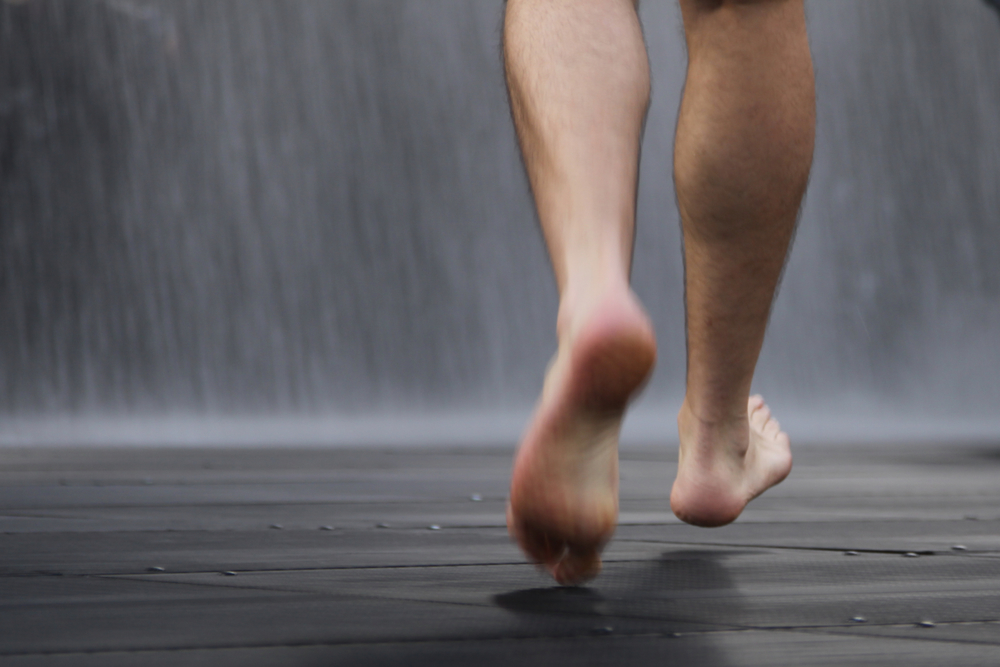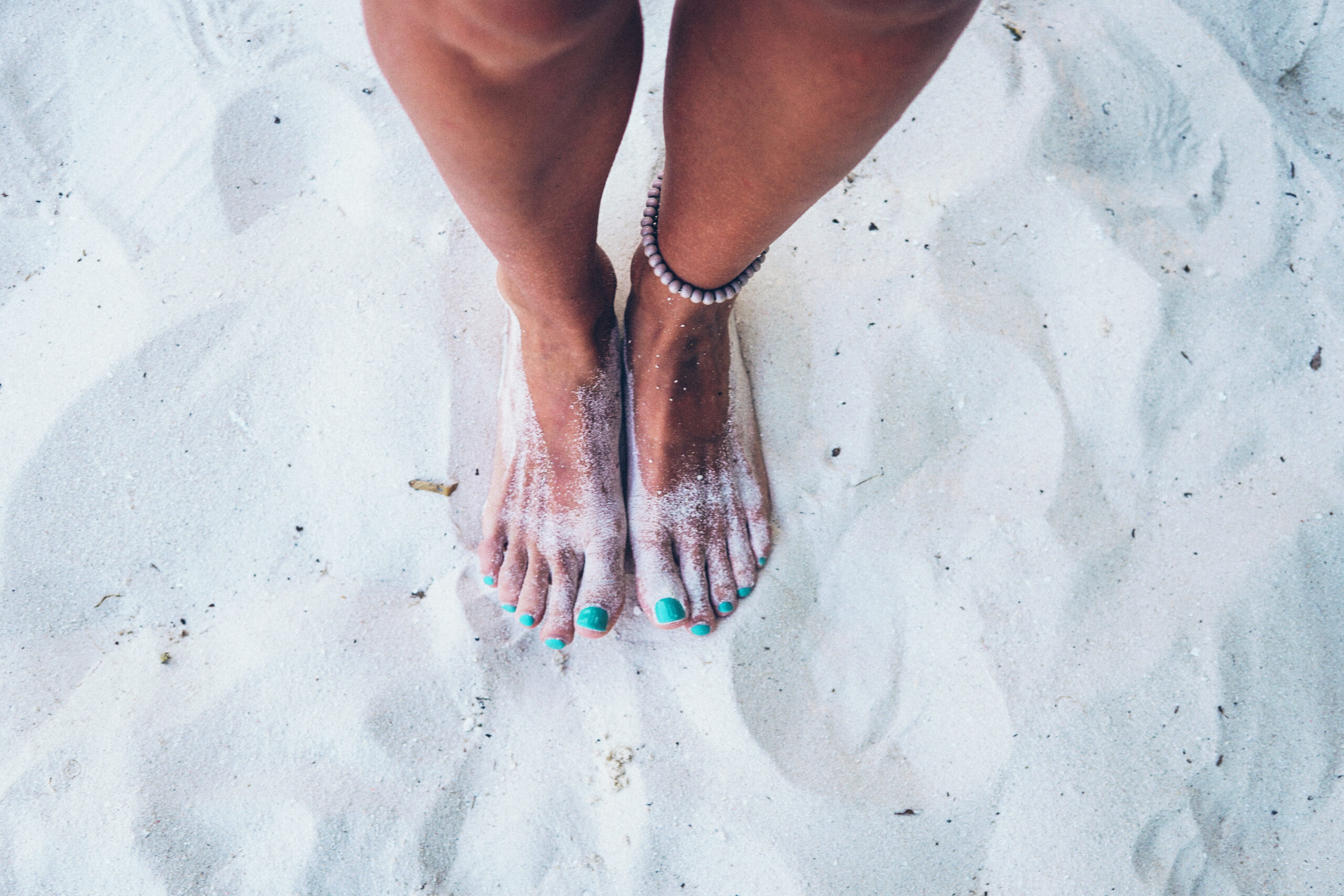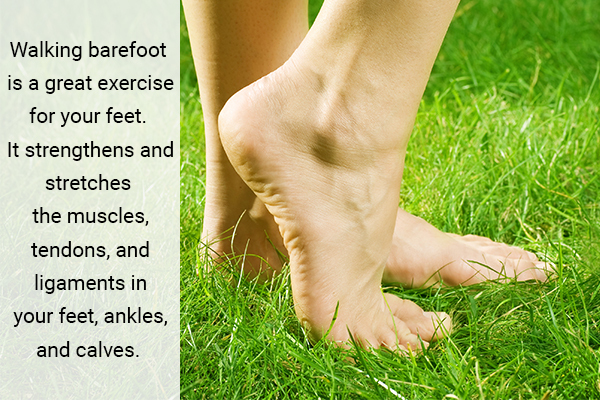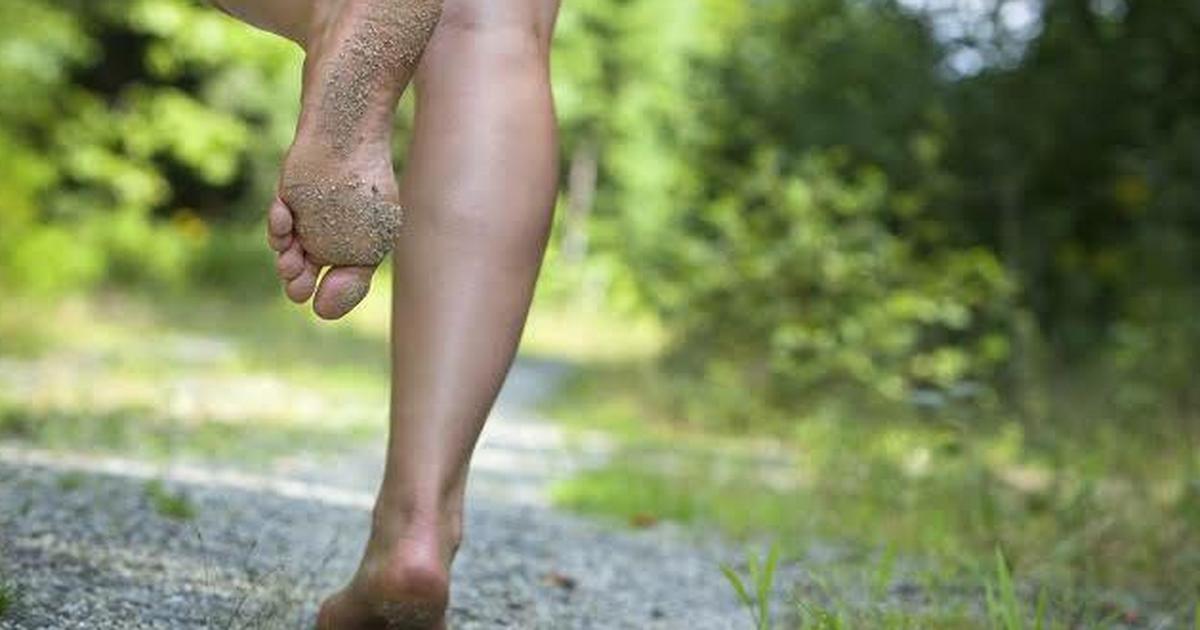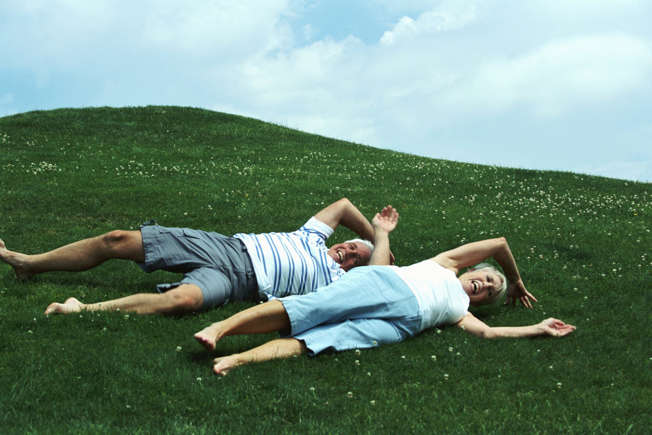The “it” show of late seems to be no shoe at all. Much of the barefoot revolution is powered by scientific research suggesting that ditching your shoes and making skin-to-ground contact can come with powerful health benefits. But how true is it?
So popular has going barefoot become that The Cut called the summer of 2023 “Barefoot Boy Summer.” It’s true, many hipster celebrities have been spotted strolling through city streets with a complete lack of footwear. And it’s a practice touted by female trendsetters like Gwenyth Paltrow too. But that isn’t what’s convincing.
Going barefoot and connecting with the Earth is a therapeutic technique that has been dubbed “grounding” or earthing. Of interest to both scientific and wellness communities, the theory suggests that walking barefoot allows the body to absorb negative electrical charges from the Earth, which may act as an antioxidant or balance the body’s energy.
In a 2015 review of grounding published in the Journal of Inflammation Research, scientists say that there have long been subjective reports that walking barefoot enhances health and provides positive feelings, something that is found in literature and practices of diverse cultures around the world.
The same article pointed to a small study that looked at the effects of a grounded sleep system, where a bed with silver threads is connected to the Earth. The study tracked 12 people who had trouble sleeping and found that after eight weeks, their stress hormone profiles normalized and most reported better sleep and less pain and stress.
A 2022 study published in Healthcare separated groups of patients with Alzheimer’s into two groups — one that held their feet on a fake grounding mat for 30 minutes and another group that connected their bare feet to a mat connected to the outdoors. In the blind study, sleep quality was “significantly” improved in the grounding group, although their mood remained the same.
The 2015 study suggests that grounding reduces or even prevents inflammation after injury and helps heal. Researchers showed how daily 30-minute grounding sessions for two weeks helped rapidly heal a wound in an 84-year-old woman who was previously not healing. Similar results were documented in other cases, including a cyclist injured during the Tour de France.
Some of the most promising studies have been done by researchers at the University of California at Irvine. In a double-blind pilot study, they used thermal imaging to observe that one hour of contact with the Earth appeared to promote control of body fluids and peripheral blood flow that “may improve blood circulation in the torso and face, facial tissue repair, skin health, and vitality and optimize facial appearance.”
The same group in California also conducted a small study on massage therapists to see how grounding might affect them. Before the study, the massage therapists complained of pain, anxiety, depression, fatigue, poor sleep, energy and stress.
The study with the massage therapists found that incorporating grounding into their lives boosted physical function, energy, and mood. Participants also reported less fatigue, pain, and depression while grounding.
A small 2018 study also looked at what happened when patients with hypertension grounded themselves for several hours per day for months. In the end, the average blood pressure dropped by 14.3%, suggesting that the therapy warrants further research.
Many celebrities and wellness gurus also insist that grounding is a must for reducing the effects of jet lag. There haven’t been studies, but grounding advocate and founder of the Bulletproof diet, Dave Asprey, swears by it. If nothing else, it could bring you to a nice park in a new destination.
In a 2022 paper published in the Biomedical Journal, researchers suggest that grounding is one of the greatest kept secrets and could be the “anti-inflammatory antidote for modern man.” The researchers are particularly excited about the emerging science because grounding is “free, easy to implement, and improves the quality of living.”
While there are grounding mats and even beds for purchase, grounding is free to those who can walk or even lie on a patch of grass, sand, or dirt. Perhaps that’s why there haven’t been larger studies, which can get expensive to conduct.
Researchers looked at the feet and gait of Kenyans, around half who wore shoes most of their lives, and half who didn’t, and concluded that “nature makes a fine footwear engineer.” That’s because those who went barefoot had calluses that were quite helpful. The 2019 study was published in Nature and many say it kicked off the barefoot running trend.
Time Magazine reports that podiatrists (foot doctors) have been alarmed by the surge in people going about their daily lives without any shoes. That’s primarily because it can be dangerous — you can step on glass, wood splinters, rocks, needles, etc. Even grosser, tiny cuts in your feet can let bacteria, fungi, viruses, or parasites in. Plantar warts or athlete’s foot (shown) are common infections.
The podiatrists warned about the dangers of walking in cities but also about going hiking barefoot due to the increased risk of slipping and falling. They added that people are treated for injuries related to mowing their lawns barefoot every year. Although people raised without shoes have grown the right calluses, feet that have been babied for decades may not be tough enough to keep proper form.
While there is some promising evidence about the benefits of grounding, that doesn’t mean throwing away all your shoes. Contact with the Earth can be done seated, hugging a tree, lying on the ground or swimming in the sea. To get more experimental you can also use grounding mats, beds or yes – special grounding shoes! If you do walk around barefoot, be very careful where you step.


